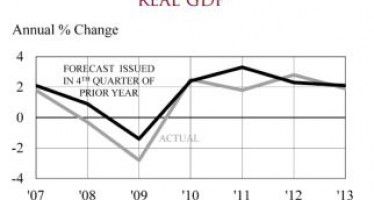Sacto's Measure B Big For State
OCT. 14, 2010
By KATY GRIMES
City utility department increases are occuring all over the state. But in Sacramento, the fight is on between the city and anti-tax proponents. On the November ballot is “Measure B,” a utility rollback initiative that would “roll back” a July 2009 utility increase of 9.2 percent on water, sewer and garbage bills, and place new limits on the City Council’s power to raise city utilities rates. If passed, the measure would require voter approval for hikes that exceed annual increases in the Consumer Price Index.
A recent Sacramento Bee editorial stated opposition to the measure because the rollback “would handcuff City Council members.” The Bee‘s editorial board said, ” They have already shown they’re responsive to constituents by trimming requested rate increases to more reasonable levels. If residents want lower bills enough to accept fewer trash pickups and other service cuts, that’s a debate for the council table, not the ballot box.”
If the measure passes, according to the Bee, “the typical single-family homeowner would save about $100 the first year, and the average small business $60.”
In January, the Sacramento County Grand Jury lambasted the city in a report stating that the city had diverted more than $21 million in utility money for general government expenses, and that city officials had ignored warnings as early as 2003 that they were violating Proposition 218, which dates to 1996.
The Bee also stated in its editorial, “The city has changed the practices in question, or otherwise responded to many of the grand jury findings, but there has never been a full reckoning.” What’s more, City Councilman Kevin McCarty has publicly stated several times that the city utility department has already been audited.
“Not so,” said Craig Powell, author of Measure B and Sacramento Attorney. “That’s a complete fabrication. The council has resisted Mayor (Kevin) Johnson’s efforts, on two occasions, to hire efficiency auditors. Their newly hired city auditor is skipping any audit of the utility department in his list of audit targets for his first year in office, despite the department being named ‘dysfunctional’ by almost every council member.”
Powell said that the Bee is apparently just taking the word of the City Council and city staff. “They had a chance to audit the department after last January’s grand jury report (entitled “The Law is the Law”), blowing the cover off of years of illegal diversion of ratepayer money, amounting to more than $21 million. They had the option of appointing a special investigator to investigate the law-breaking. They had the option of firing or disciplining the city managers responsible for the illegal diversions. Instead, they did nothing.”
The 1996 initiative, authored by Howard Jarvis Taxpayers Association, bars cities from charging utility ratepayers more than the cost of providing services, or from using those revenues for non-utility purposes. Prop 218, “The Right To Vote On Taxes Act,” “plugged a long-standing loophole in Proposition 13 by requiring localities to get a popular vote, or in some cases, permission from property owners, for fees, assessments, and other levies that operated as taxes but weren’t technically called taxes. This initiative now saves California taxpayers about $100 million a year.”
In June 2009, the Sacramento City Council imposed a 19 percent utility hike on residents and ratepayers. As citizens were struggling to hold onto homes and local businesses were closing their doors at record rates, the council approved rate hikes that exceed the rate of inflation by more than 321 percent during the past nine years. “Since 2006, the Utility Department rate hikes have exceeded inflation by a scandalous 1,321 percent,” according to Powell.
Two separate lawsuits filed against the city to halt the illegal diversions of rate payer funds under Prop 218 were filed last year, but according to Powell, “The city is still breaking the law by using ratepayer money to subsidize general government services. Under one settlement reached between the city and plaintiff Howard Jarvis Taxpayers Association, the city promised to stop breaking the law by the year 2017.”
Powell added that, “In an effort to try to halt Measure B, only in the last week has City Councilman Steve Cohn, conveniently promised that the city will finally audit the utilities department. Don’t believe him. The city has had years to do comprehensive audits of the department, and failed to do so.”
The “Friends of Steve Cohn for City Council 2010 committee” has donated to the campaign to defeat measure B, according to the Sacramento Press.
And just this week, Measure B campaign volunteers said that the local Plumbers and Pipe Fitters Union has donated $100,000 to defeat the utility rate rollback initiative, but that they timed it carefully so that it wouldn’t be reported until after the election. No one at the union would when I called to confirm this. Harry Rotz, the union’s business manager, did not return a phone message by press time.
Cohn and McCarty recently formed a campaign to defeat Measure B. “We don’t think (Measure B) is a good idea for the city of Sacramento,” McCarty said. “The bottom line is, it’s going to blow a big hole in our budget.”
In what appears to be a webpage promoting the defeat of Measure B, the City of Sacramento has posted information, together with a PowerPoint presentation and brochure about the initiative on its website titled, “The Facts about Measure B.” The website states if Measure B passes, there will be a $22 million reduction to the utility department, along with “anticipated lay-offs of 80 full-time employees at all levels, reduced funding for capital improvements to critical infrastructure by millions of dollars, only the most urgent utility service problems would have priority. There will be increased delays in responses to service requests including water pipes or main breaks, sewer overflows and street flooding Reduced water pressure due to reduced pumping/well shutdowns, which can impact fire protection in the community, and reduction from weekly recycle and lawn & garden service to every other week.”
Calls to the City of Sacramento Utility Department were not returned, but an e-mail sent by city Utility Department media affairs representative Jessica Hess said, “I received your message regarding Measure B. As I am sure you know, the City cannot take a position on the initiative. Information regarding the potential impacts of Measure B can be found on the City’s Website at http://www.cityofsacramento.org/measureB/.
In its report, the Sacramento County Grand Jury was not only critical of city officials for diverting $21 million in ratepayer money to the general fund, but it also found that city officials were covering up the illegal spending of city utilities funds. The Grand Jury report reiterated that the law states that money from residents’ utilities bills cannot pay for anything other than the cost of utilities services.
McCarty has acknowledged that the city “has faced problems with Prop. 218, but the city is continuing to address those issues,” reported the Bee. McCarty has denied that there is any correlation between Proposition 218 and the issues of Measure B.
Powell predicted that his initiative could be big for the entire state. “With municipal utilities rates exploding in communities all across California, the utilities rate rollback initiative has the potential for serving as the ‘Prop 13′ of the modern era,” he said.
Related Articles
Chapman Forecast: Steady CA growth
Chapman University’s new economic forecast projects steady but not spectacular economic growth for California and the nation. Real U.S. GDP
CA fires could reshape pot landscape
As the smoke cleared from California’s wildfires, analysts agreed that the marijuana industry may never be the same. Legal, illegal
Labor-backed bill may force union on farm workers
Democratic state legislators passed a bill that could result in thousands of Fresno farm workers paying dues to a union




